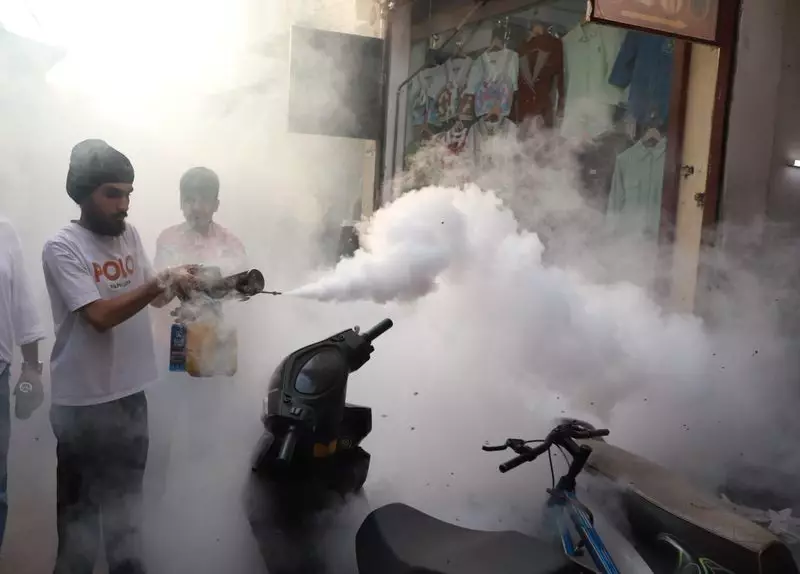
In a significant public health victory, Jammu has witnessed a dramatic 62% decline in dengue cases, thanks to an intensive anti-mosquito campaign launched by the local municipal corporation. The comprehensive drive has yielded impressive results, transforming the city's battle against the mosquito-borne disease.
Health officials confirmed that the strategic intervention has led to a substantial reduction in dengue infections across the region. The municipal corporation's proactive approach included multiple layers of mosquito control measures that targeted both breeding grounds and adult mosquitoes.
Multi-Pronged Strategy Delivers Results
The success story emerges from a well-coordinated effort that involved:
- Intensive fogging operations across vulnerable areas
- Regular door-to-door inspections for mosquito breeding sites
- Public awareness campaigns about preventive measures
- Prompt larval source reduction in water bodies
- Community participation initiatives to maintain cleanliness
Officials Hail Community Cooperation
Municipal health authorities emphasized that the achievement was made possible through excellent cooperation between civic workers and local residents. The community's active participation in eliminating potential mosquito breeding spots around their homes played a crucial role in the campaign's effectiveness.
"The consistent efforts of our sanitation teams, combined with public support, has created a formidable defense against dengue," stated a senior health official involved in the drive.
Sustained Efforts Key to Long-term Success
While celebrating the current success, health authorities have stressed the importance of maintaining vigilance. The municipal corporation plans to continue its anti-dengue activities throughout the year, with special focus on the monsoon season when mosquito breeding typically peaks.
The remarkable 62% reduction in cases serves as a model for other cities grappling with vector-borne diseases, demonstrating that systematic, community-involved approaches can yield substantial public health benefits.





